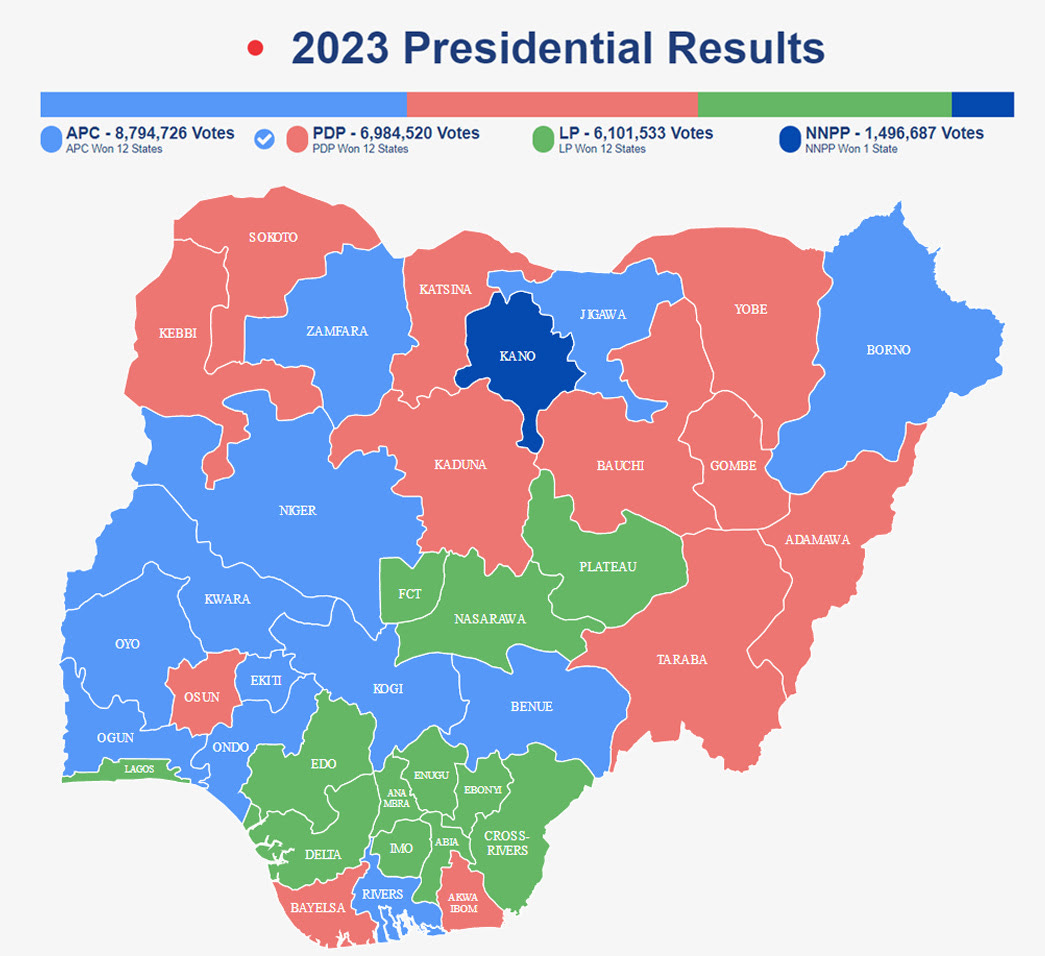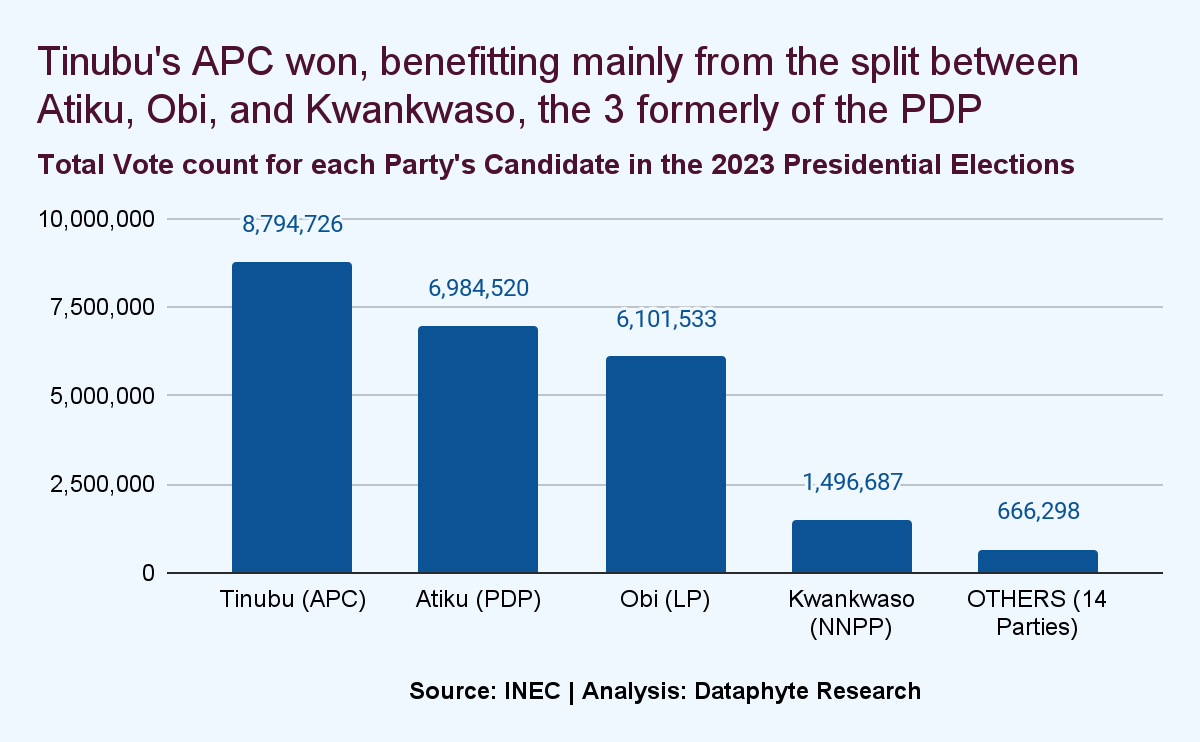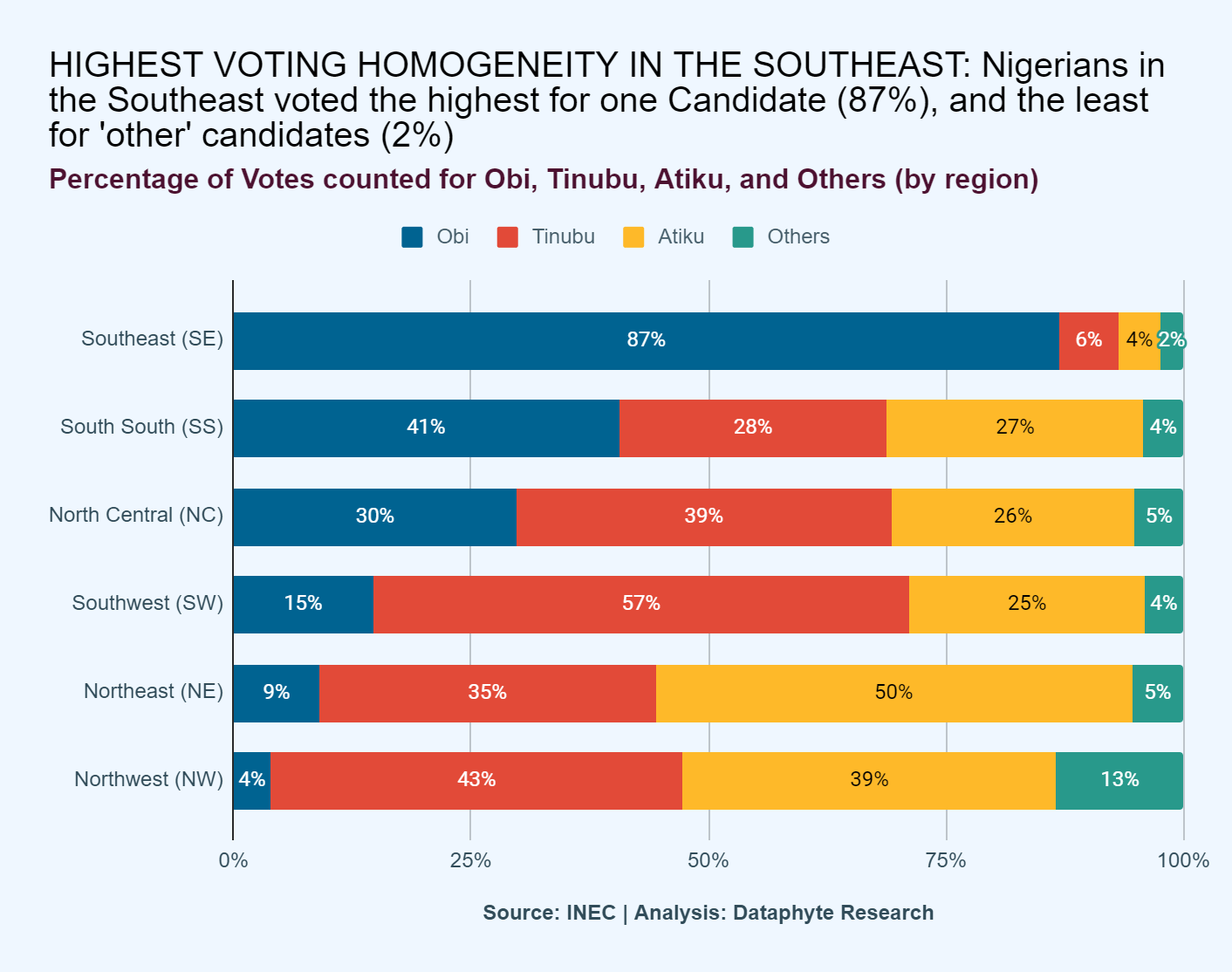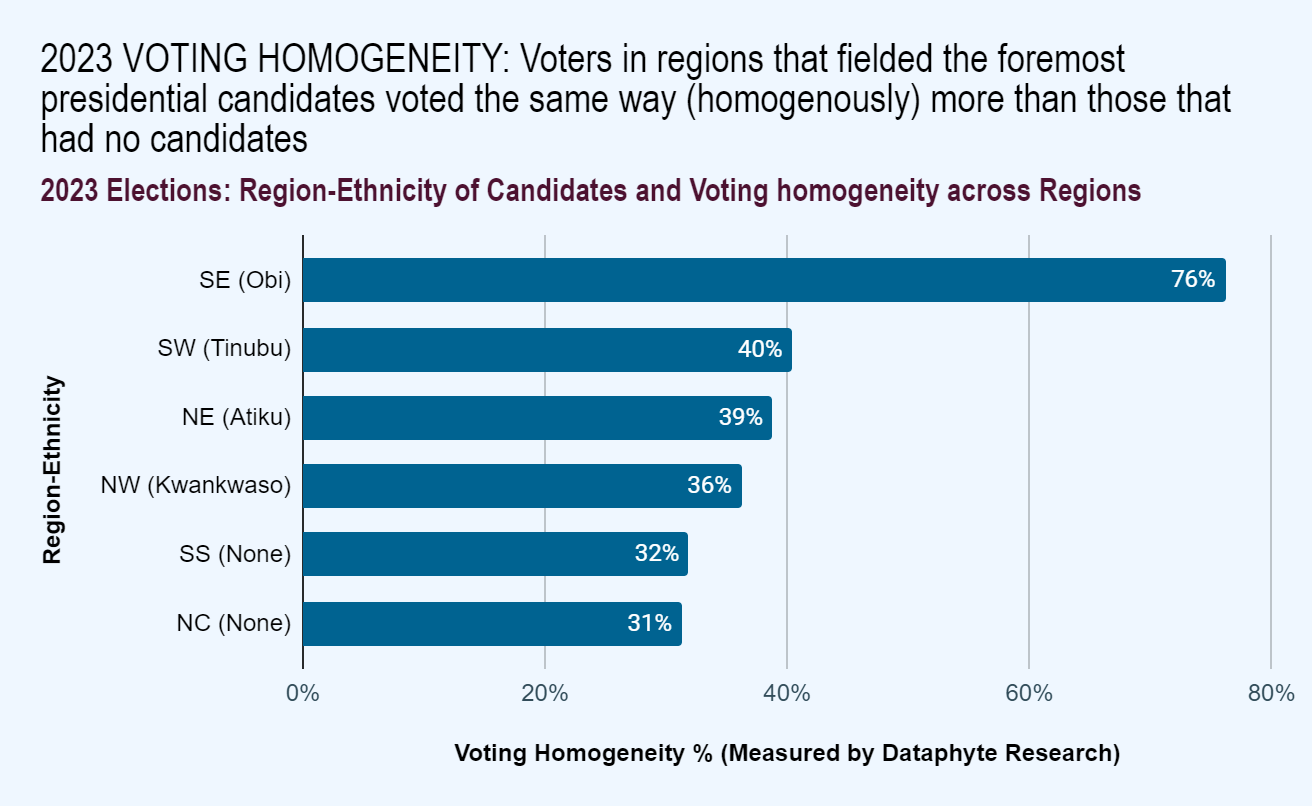Monitoring spirits everywhere.
Nigerians speak of being remotely monitored by some so-called village people. It doesn’t matter whether they are atheists or animists, Muslims or Christians. Deep in their soul, they bear a surreal burden of surveillance.
Data Dives from Dataphyte is a reader-supported publication. To receive new posts and support my work, consider becoming a free or paid subscriber.
When you hear a Nigerian ask: “They send you?” She’s referring to human actors for these monitoring spirits. And many insist these monitors were sent by their village people.
Nigerians believe these spirits remotely interfere with the life of the people they monitor instead of just observing and giving reports to whoever sent them.
That could be the reason the INEC Chairman warned the legions of election monitors not to interfere with the 2023 elections. The Independent National Electoral Commission (INEC) received an unprecedented number of local and international election observers this year.
Yakubu stated: “For the 2023 general elections beginning this weekend with the presidential and national assembly elections, the commission has accredited 196 national or domestic groups that are collectively deploying 144,800 observers.
“Similarly, the commission accredited 33 international organisations deploying 2,113 observers. In all, 229 groups are deploying 146,913 observers for the 2023 general election.
“This is the largest deployment of domestic and international observers in the history of elections in Nigeria.”
Then Yakubu warned the monitors: “Do not interfere with the process or show partisanship”.
On the surface, it appears people do not like to be monitored, that they are averse to people ‘spying on their liberties’.
Yet what the INEC Chairman fears is what monitoring spirits are usually accused of – interference.
Indeed, local and international election monitoring groups have been churning out reports about the elections ranging from the good to the bad and the ugly.
Many say INEC’s conduct of the February 25 Presidential election was flawed in some ways but maintain it could be the Commission’s best so far. Some insist it is their worst performance.
Yet, whether we judge election observers to be fair in their assessment of the elections (including the ongoing governorship and State Houses of Assembly elections today) or not, election monitoring has great benefits to the electoral process and the democratic future of a country. The INEC Chairman also acknowledged this.
“The progressive improvement in our electoral democracy since 1999 draws in part from the reports of observers and the study tours. That is why over the years, the commission has sent open or specific invitations to national and international observers. The implication is that all accredited observers are guests of INEC”, he remarked.
So, there are nice monitoring spirits after all.
And whatever position you take within the spectrum of observer opinions on the 2023 elections is okay after all. What matters is that these comments shape the country’s electoral process such that every election is conducted better than the last.
Well, the Dataphyte staff serve among the national observers too. These folks could be something between neutral election monitoring staff and nice election monitoring spirits.
Follow Dataphyte’s election analysis
The organisation deployed its Election Portal, Dataphyte Election Portal (DEP) to report live election incidents and results from the country’s 174 local governments.
Besides our observations in several reports, including those in the last edition of the Data Dives and the penultimate one, this much we can add for now: Nigeria’s 2023 elections recorded many authentic feats, ingrained antidemocratic faiths, and election outcomes sealed by the candidates’ autochthonous fates.
Authentic Feats
First, besides the 146,913 election observers from 229 national and international groups, INEC also accredited 1.5 million party agents from the 18 political parties to record and report the conduct of elections across the country’s 176,974 polling units across the country.
“The People’s Democratic Party (PDP) has the largest number of agents, with 176,588 people manning 176,974 polling units nationwide.
“This is followed closely by the ruling All Progressives Congress (APC) which has 176,223 registered agents and the New Nigeria People’s Party with 176,200 agents.
“The Labour Party (LP) has 134,874 agents which could be boosted by an additional 96,043 agents of the African Democratic Congress (ADC), making 230,917. On Monday, the ADC announced its endorsement of the presidential candidate of the LP, Peter Obi.” Nigeria Info reported.
Second, this is the first time the wins would be split between 3 candidates who shared their wins of a third of the country’s 36 states/territories equally. Bola Tinubu and Atiku Abubakar each won 12 states and Peter Obi won 11 states and the FCT. Rabiu Kwankwaso won 1 state.

Source: Civichive
The results show that Tinubu’s APC won the elections, benefitting mainly from the split between Atiku, Obi, and Kwankwaso, the 3 formerly together in the PDP. This is besides the further split among the governors who remained in the PDP.
The popular ‘G5 governors’ were noted in this further breakdown of the PDP’s election strength.

However, the split within the parties affords Nigerians and aspiring politicians the opportunity to see other possibilities beyond the 2 strong parties.
Antidemocratic Faiths
Talk of Lagos monitoring Spirits too.
There were reports that some royal fathers in Lagos State had declared Oro and like rites. These placed a curfew on non-Lagos State indigenes or/and non-ethnic Yorubas from going out on election day.
Adherents of the indigenous African traditional religion in these parts believe the Oro comes with ancestral spiritual presences that only initiates of the Oro cult and male indigenes could view without being harmed.
It appears idle ghosts were roused by the results of the February Presidential elections, where Peter Obi beat a Lagosian in Lagos state, by a unanimous decision.
But the police have assured that these reports are untrue – that these types of monitors are not allowed on election day.
Besides the autochthonous faiths of our fathers, we also observed a significant religious opposition between adherents of the Abrahamic religions – Christians and Muslims in the 2023 elections.
Before the elections, there were many divisive comments by leaders of the two faiths. This included instructions on the candidate their followers should vote for. This robs these devotees of agency and their freedom of choice.
These divisive speeches went on even after the elections were called for Bola Tinubu, the APC candidate.
During the elections, the majority of Christians in the Southeast, South south, and North central voted for Peter Obi, the main Southern Christian candidate.

Conversely, the majority of the Muslims in the North Central, Northeast and Northwest did not vote for Peter Obi but voted for Abubakar Atiku and Bola Tinubu, the Muslim candidates from the North and South of the country.
Autochthonic Fates
And then the ethnic card. Voters in regions that fielded the foremost presidential candidates voted more in the same way (homogeneously) more than those that had no formidable candidates.
Suffice it to say that besides religious affinity, people voted for candidates from the region of their ethnic origin.

Recall that Dataphyte Research predicted the most accurate results for the 2023 elections, using religious homogeneity and voting homogeneity statistics across states and the FCT.
Dataphyte measurement of the voting homogeneity in the 2023 elections shows that 8 among 10 voters in the Southeast voted for the same person. Actually, Peter Obi got 87% of the votes in that region.
In the North Central, 3 out of 10 voters voted for the same person. Actually, 30% voted for Peter Obi, 39% for Bola Tinubu, and 26% voted for Abubakar Atiku.
For instance, if a popular candidate emerges from the South-South in the next elections, the region’s voter homogeneity may rise considerably from 32% in the 2023 elections.
However, one good thing that could be reported about this election is that more than before, the people have started looking beyond their indigenous affiliation with a candidate in their voting choices.
We hope the next general election will feature more credible and popular candidates and fewer votes based on autochthonic affiliations with the candidates in the polling booths.
And a tiny little secret. The tables are turned now. You can now monitor village people on the go as they vote.
Log on to Dataphyte Election Portal (DEP) for live results from polling units in every village, town, and city in today’s governorship and House of Assembly elections.
Have a happy weekend and a hopeful wait for the results of today’s elections!
Source: Dataphyte
 Secret Reporters No place to hide
Secret Reporters No place to hide







